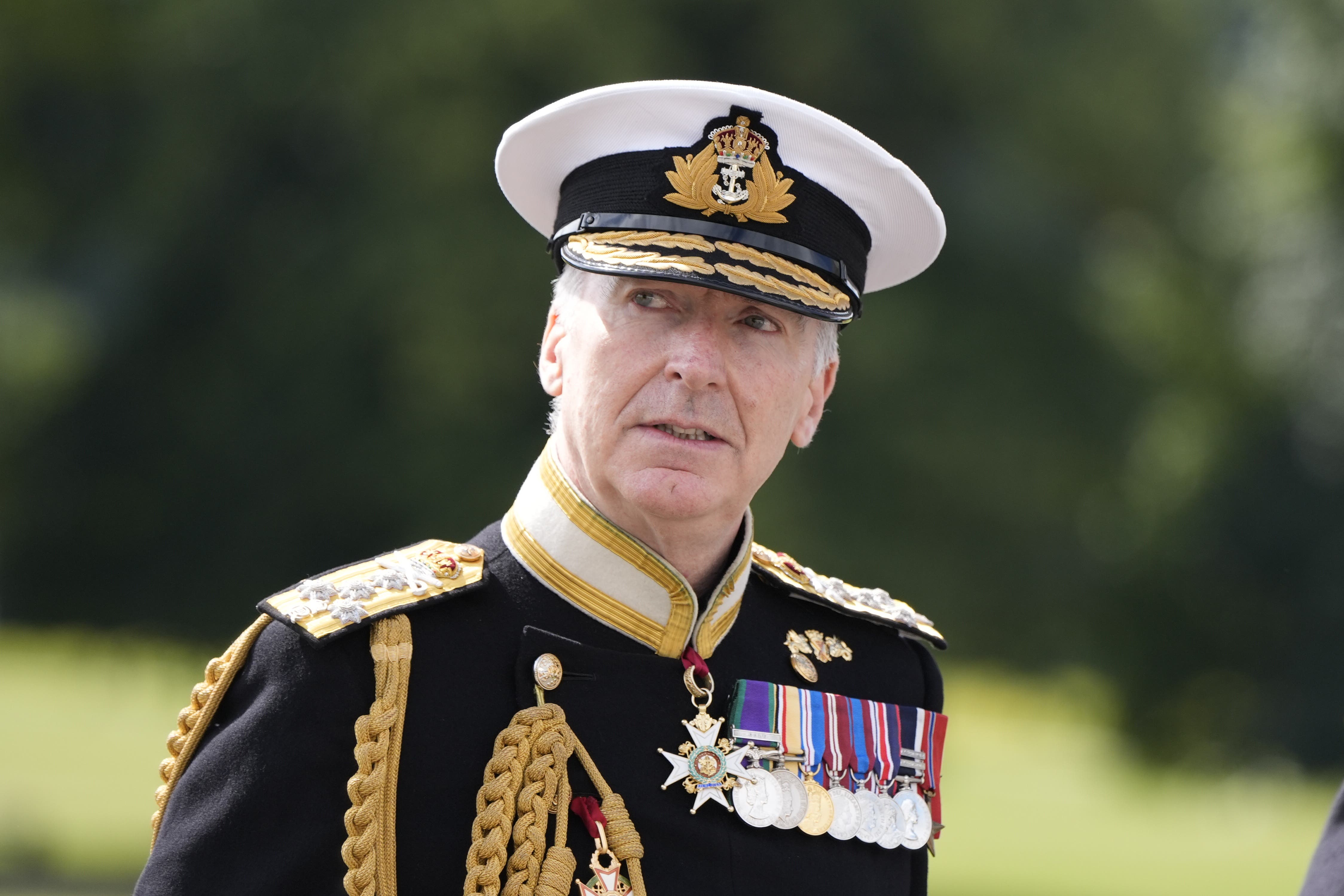
Britain should follow the example of Nordic and Baltic countries and boost its defences to prepare for war, the UK’s top military leader has said.
Admiral Sir Tony Radakin, the chief of the UK defence staff, said Britain’s culture of national resilience was weaker than that of some of its European allies and the country still had to catch up in civil readiness for war.
He spoke on the day the defence secretary announced cuts to the military, including the Royal Navy’s two amphibious assault ships, a frigate and 31 helicopters. John Healey blamed the disputed £22bn black hole left in the finances by the Tories.
Russian president Vladimir Putin has this week warned of nuclear consequences if long-range US missiles from Ukraine hit his country – raising the stakes in continuing tensions with Europe.

“I think we have to acknowledge that we are in a different position … a slightly weaker one than my [Nordic and Baltic] colleagues on the panel,” Sir Tony told a Berlin security conference.
“It’s an area where we don’t have the culture of total defence. We don’t have some of the civil aspects or planning aspects that other countries within Nato have as part of their traditions. We are having those conversations to learn from our colleagues and see what might be appropriate for ourselves.”
Earlier this year, General Sir Patrick Sanders, the head of the British Army, claimed the UK needed a citizen army of tens of thousands of troops to fight a future war against Russia.
Gen Sir Patrick said his forces, including all reserves, would not be large enough to defend the country if there was a war, and it was essential for Britain to lay the foundations for “national mobilisation”.
Following Moscow’s increasing successes on the battlefield and Mr Putin’s increasingly entrenched anti-Western rhetoric, Nato leaders have called for individuals and businesses to play their part in preparations for war, an approach known as “total” or “whole-of-society” defence.

Sweden is planning to introduce civilian conscription for young men in the wake of Russia’s invasion of Ukraine, its government says.
“Deterrence doesn’t start at the barrel of a gun. It starts with a society that can muster a credible answer to the threat of an armed attack … You cannot just outsource security to the military,” said civil defence minister Carl-Oskar Bohlin.
Sweden has issued every household with a pamphlet called In Case of Crisis or War, telling people how to seek shelter if there is an attack, how to cope with power or water outages from missile strikes, and what food, medicines and other supplies to stock up on.
In recent months Norway, Finland and Denmark have all republished similar guidance.
In Germany the military has begun implementing a strategy paper on how to keep the country functioning if it comes under attack.
The Conservatives in government unveiled a strategy to ensure the UK was better prepared for crises such as pandemics, terrorism and extreme weather, with a new UK Resilience Academy to offer training and education on resilience planning
Following US president Joe Biden’s decision to allow Ukraine the use of long-range US missiles in Russia, Mr Putin signed a new doctrine lowering the threshold for the use of nuclear weapons.







